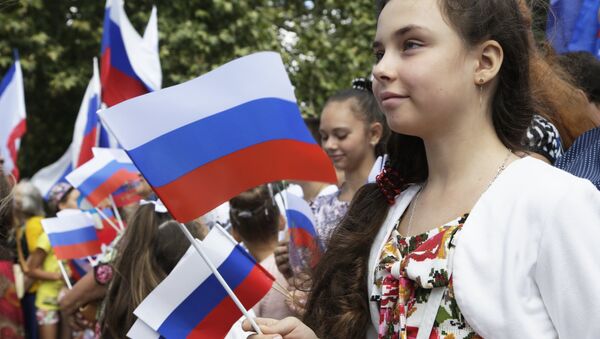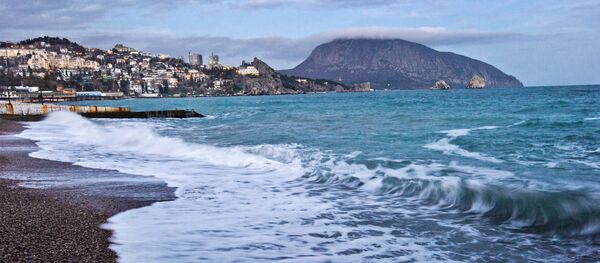MOSCOW (Sputnik) — On March 19, a delegation consisting of around 20 individuals, including members of the European Parliament, politicians from EU member states, CIS countries and Latin America arrived in Crimea for a three-day visit. The group was given a tour through local sights and held meetings with regional authorities.
"I wanted to see the situation in Crimea and I was absolutely delighted. I saw the people wanting to be a part of the Russian Federation. That is what came over to me strongly. I never heard of anybody saying that they have been put down, they were repressed or had difficulties with the Russian authorities. For a very long time now the West has had a very shortsighted policy towards Russia. When I was in Crimea, I have never seen a policeman on streets, I have never seen a soldier, no civil disorder, nothing of that sort," Richard Wood said.
Crimea split from Ukraine to rejoin Russia in March 2014 following a referendum in which over 96 percent of voters supported the move. Western authorities and media labeled the vote an illegal "annexation." Moscow has stated that the referendum fully complied with international law.
Commenting on anti-Russia sanctions introduced over Ukraine crisis, the British politician said he was puzzled by the fact that they were still in place, as Moscow had already fulfilled its obligations under the Minsk II agreement. He urged the West to immediately lift sanctions and engage in direct talks with Moscow.
Another UKIP member, Nigel Sussman, who also visited Crimea, told Sputnik on Wednesday that he intended to write an open letter to UK Prime Minister Theresa May calling for the lifting of sanctions imposed on Russia.
"I will support Nigel Sussman in this, absolutely, but we need to go further than that, we need to get a hold of a new president in America and ask Donald Trump to lift sanctions now. Russia, from what we can see, has complied with the requirements of Minsk II and there is no need for sanctions to be in place," Wood stated.
Brussels, accusing Moscow of meddling in the 2014 Ukrainian crisis, imposed anti-Russian sanctions that have been renewed several times. Russia denied any involvement and responded with countermeasures.
Moscow has repeatedly claimed it was counterproductive to link sanctions with the fulfillment of the Minsk ceasefire agreements of February 2015, as Russia was not a party to the conflict between Kiev forces and local residents, the latter of which refused to recognize the new government implemented in 2014, following what many consider to be a coup.
The Minsk deal stipulates durable ceasefire and weapons withdrawal from the line of contact in southeastern Ukraine, as well as constitutional reforms that include the devolution of more powers to the region, and the granting of a special status to the breakaway Donetsk and Luhansk provinces.



